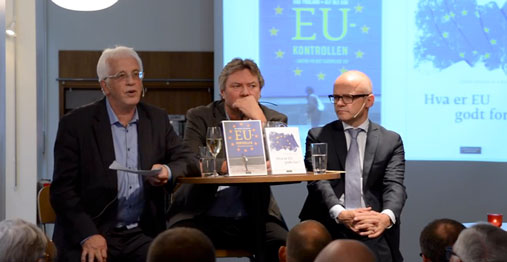After World War II, European countries joined forces in a committed relationship, which it is now difficult to withdraw from. The EU is here to stay. How was this possible? And what is the EU good for?, Erik O. Eriksen asks in his newest book.
The book reconstructs the European integration process and identifies the normative commitments that the EU is founded on: human rights, impartiality, democracy, and dignity. The goal has always been a peaceful and united Europe - a Europe without humiliation.
With the financial and sovereign debt crisis, however, humiliation is brought back in. According to Eriksen, this is due to the structural defects of the Eurozone; the Union does not have the competence to decide in social and economic matters, which remains within the remit of the member states. Further integration is therefore necessary to resolve the crisis and to realize Europe's unfulfilled obligation of solidarity.
Book launch in Oslo
The book was launched at a debate organised by publisher Cappelen Damm on 23 September 2015. The event Hvorfor klikker ingen på EU? also discussed a second book written by journalists Alf Ole Ask and Dag Yngland.
The two books were discussed by authors Eriksen and Ask as well as the Norwegian Minister for EU/EEA affairs, Vidar Helgesen. See a video of the debate (in Norwegian).

